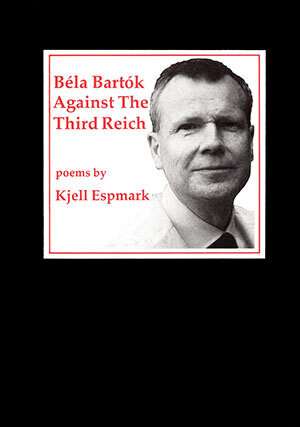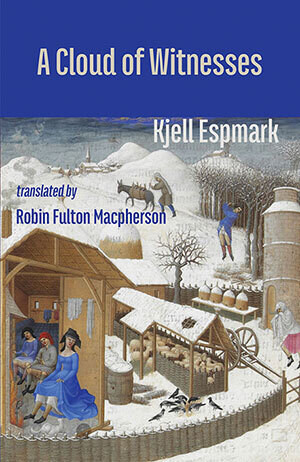Shearsman Store
Espmark, Kjell
Kjell Espmark (1930–2022) was born in Strömsund, Sweden. He was a writer and literary historian, and was Emeritus Professor of the History of Literature at Stockholm University. He was elected to the Swedish Academy in 1981.
While still a student at Stockholm University College Espmark made his debut with Mordet på Benjamin (The Murder of Benjamin, 1956). A second volume, Världen genom kameraögat (The world through the eye of the camera) followed in 1958, and a third in 1961, Mikrokosmos (Microcosm). He spent most of the 1960s in literary research, concentrating above all on his forerunners, Artur Lundkvist and Harry Martinsson.
Espmark's work took wing in the 1970s, firstly with the the trilogy Sent i Sverige (Late in Sweden). The three volumes are symmetrically arranged, with 25 poems each, and the titles that follow, Samtal under jorden (Conversations Underground, 1972) and Det obevekliga paradiset (Implacable Paradise, 1975), suggest links to Dante's Divine Comedy.
What Kjell Espmark was doing at this time in his poetry was thus a kind of "soul translation"—and this became for a time the direction his literary-historical writing took. He published a couple of important volumes which in a natural way led to the professorship at Stockholm University in 1978: Att översätta själen (Translating the Soul, 1975) and Själen i bild (Image of the Soul, 1977). This "materialisation of the state of the soul"—how the "inner" becomes the "outer"—is followed in the former book through international lyrical modernism (including Baudelaire, Mallarmé, Rimbaud, Eliot and Breton), in the latter through Swedish (including Ekelund, Lagerkvist, Södergran, Ekelöf, Thoursie and Tranströmer): "The will to materialise what is internal is all-pervading in turn-of-the-century symbolism, the avant-gardism of the 1910s and surrealism."
Shortly after Espmark had received his professorship he began work on a new lyric trilogy. The perspective had now widened, and in Försök till liv (Attempt at Life, 1979), Tecken till Europa (Intimations to Europe, 1982) and Den hemliga måltiden (The Secret Meal, 1984)—once again symmetrically conceived (12 fairly extensive poems per volume)—it is Europe and successively the world as a whole that stand at the centre.
In the late 1980s and 1990s, Espmark write a number of novels, but also found time to publish two verse collections: När vägen vänder (When the Road Turns, 1992) and Det andra livet (The Other Life, 1998).
[The above is adapted from the official biography at the Swedish Academy, by Jan Arnald, and translated into English by Tim Crosfield.]
Shearsman Books Ltd. All rights reserved
Shearsman Books Ltd registered office 30–31 St. James Place, Mangotsfield, Bristol BS16 9JB ( address not for correspondence ). Registered in England as company no. 4910496.




